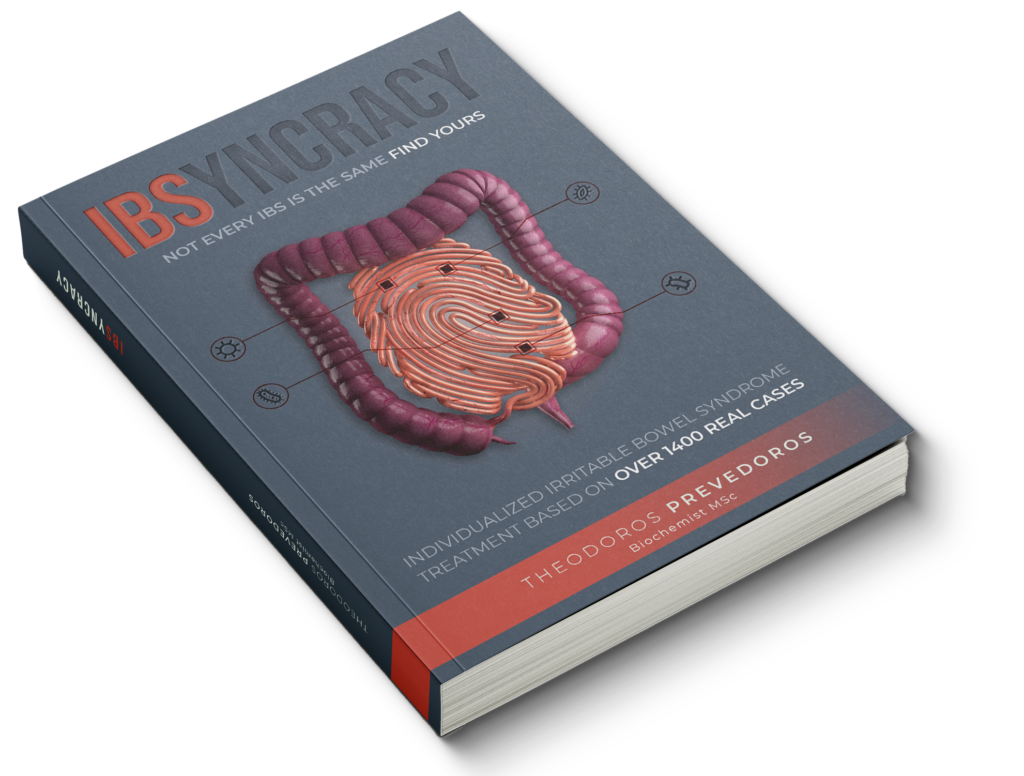
find the dedicated case study of post infectious ibs and how to reduce recovery time
Rating - 4.9
4.8/5
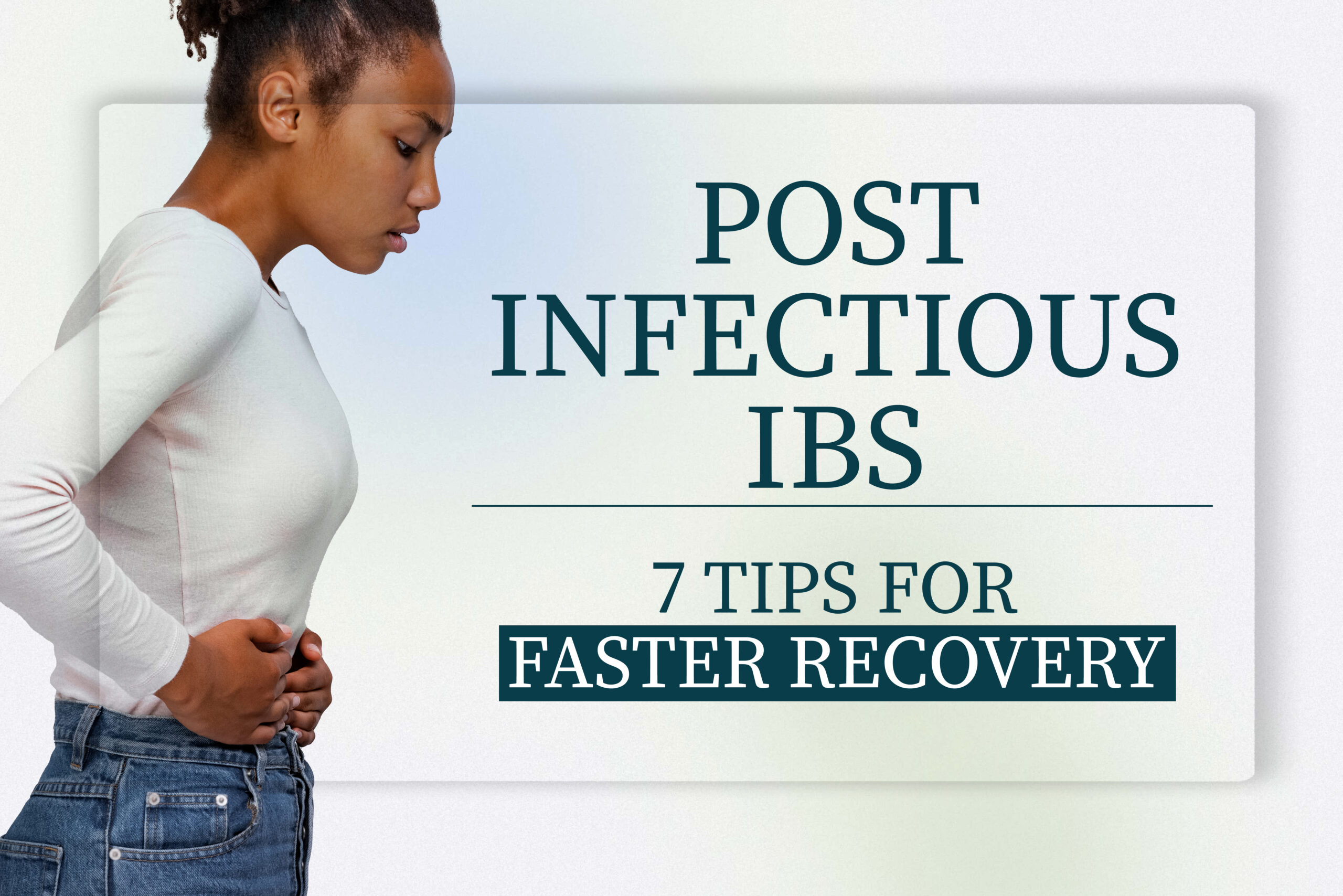
If you came across this article you do not need detailed definitions about IBS. So, if you already suffer from it you may skip to the next section. Irritable Bowel Syndrome (IBS) is a common gastrointestinal disorder affecting the large intestine, causing symptoms like abdominal pain, bloating, gas, diarrhea, and constipation. It’s estimated that 10-15% of the global population suffers from IBS. Though uncomfortable, it usually doesn’t cause any long-term damage to the digestive system.
Based on the predominant bowel habit IBS has three main subtypes : IBS with constipation (IBS-C), IBS with diarrhea (IBS-D), and mixed IBS (IBS-M) which involves both constipation and diarrhea.
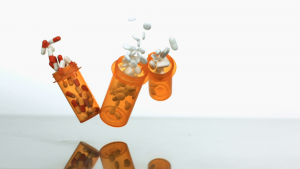
Proton pump inhibitor abuse and IBS
Case Study
In addition to the three primary subtypes of Irritable Bowel Syndrome (IBS) based on bowel habits further categorization can be made based on specific triggers. For instance, post-radiation IBS is a type of IBS that can develop following radiotherapy treatment. The exact mechanisms behind post-radiation IBS are not fully understood; however, it is thought that radiation-induced damage to the bowel mucosa, blood vessels, and enteric nervous system might play a role. This damage can lead to altered bowel function, resulting in the characteristic symptoms of IBS.
Another IBS subcategory is the one that occurs after chronic use of PPIs. Long-term use of PPIs has been associated with an increased risk of developing IBS. It has been suggested that PPIs alter the gut microbiome, leading to an imbalance in intestinal flora, which can trigger IBS symptoms. Moreover, PPIs can also decrease gastric acid secretion, impairing nutrient absorption and potentially causing inflammation in the bowel, contributing to the development of IBS. But, the one subtype that is more heterogenous and difficult to treat is Post-Infectious IBS.
Post-Infectious IBS (PI-IBS) (or Post-Infective Irritable Bowel Syndrome) is a subtype of IBS that develops after an acute episode of gastroenteritis, caused by viruses (Norovirus, Adenovirus, etc) or bacteria, like Salmonella or Campylobacter. The latter typically result from consuming contaminated food or water. In some cases, a bout of gastroenteritis can alter the GI system in many ways, leading to IBS-like symptoms that persist long after the initial infection has resolved.
Unlike typical IBS, PI-IBS often has a clearer cause and a more defined onset. The symptoms usually improve and resolve over time, with some patients recovering within months, while others may take a few years. However, the recovery process can be influenced by factors like the infectious agent, the severity of the initial illness, and the individual’s pre-infection gut health.
The recovery time of Post-Infectious IBS is under normal circumstances 1-3 months after the resolution of the infection. This time window may become much longer, though, depending on several risk factors, like gender, the use of antibiotics, the pre-infectious microbiome health even the time of the year. This is why this type of IBS is much more complicated in comparison with other subtypes and needs a much more personalized approach.

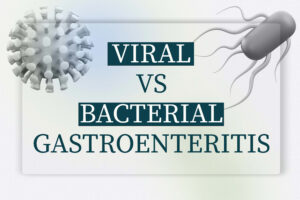
Post-Infectious IBS
Bacterial vs Viral
The type of microorganism plays a significant role in developing and recovering post infectious IBS. Bacterial infections, such as those caused by Salmonella or Campylobacter, tend to have more severe consequences than viral infections. The specific initial microorganism can impact both the severity and duration of PI-IBS symptoms.
The recovery from PI-IBS can be significantly influenced by a healthy gut microbiome. Certain strains of probiotics, like Bifidobacterium and Lactobacillus, have been shown to provide protection against and shorten the duration of infection, subsequently reducing the risk of developing PI-IBS. A diverse and balanced microbiome prior to a bout of infection may play a role in determining how quickly an individual recovers from PI-IBS and the likelihood of experiencing persistent symptoms.
One specific strain of Lactobacillus, Lactobacillus Casei-DG, has been studied for its potential role in attenuating the inflammatory mucosal response in a model of PI-IBS. According to a study, Lactobacillus Casei-DG and its postbiotics (metabolic byproducts of bacteria) can help modulate the immune response and decrease inflammation in the gut lining. The presence of Lactobacillus Casei-DG in the gut microbiome before or during a bout of infection may lower the chances of developing PI-IBS. The mechanisms by which Lactobacillus Casei-DG and its postbiotics work involve the modulation of the gut’s immune response, which can help prevent the cascade of events that cause PI-IBS.
Dietary habits can impact recovery time from PI-IBS. Diets high in junk food and low in fiber may weaken gut mucosal immunity, making it harder for the body to recover from an infection and increasing the risk of developing PI-IBS, especially after food poisoning. Maintaining a healthy, balanced diet can support gut health and promote a quicker recovery.
Seasonal factors play a crucial role in the recovery time of post-infectious irritable bowel syndrome (PI-IBS). The winter months are particularly notorious for harboring a variety of viruses that may cause bowel ilnesses and subsequently exacerbate PI-IBS symptoms. People with IBS are more susceptible to these viral agents, and their presence may prolong the recovery process.
Two specific winter viruses that may cause gastroenteritis in individuals with IBS include norovirus and rotavirus. The norovirus, a member of the Caliciviridae family, invades the small intestine’s epithelial cells, causing inflammation and damage to the gut lining. On the other hand, the rotavirus, a double-stranded RNA virus from the Reoviridae family, is another common cause of gastroenteritis, particularly in children. This virus primarily targets the mature enterocytes of the small intestine, leading to malabsorption, inflammation, and disruption of the gut’s epithelial barrier. Consecutive bouts of gastroenteritis from these two viral entities may lead to symptoms associated with IBS.
Women tend to develop PI-IBS more frequently than men, and hormonal factors are thought to contribute to this disparity. Female sex hormones like estrogen and progesterone are known to modulate susceptibility to stress, gut motility, and visceral pain perception. Meanwhile, male hormones, such as testosterone, have shown an analgesic effect in experimental pain models, potentially lowering the incidence of PI-IBS in men.
Additionally, gut microbiota, pain perception, and mucosal immune function all exhibit gender-related differences that can affect recovery time. For instance, women with IBS have been found to have increased activation in areas related to processing emotional responses, which can affect symptom severity.
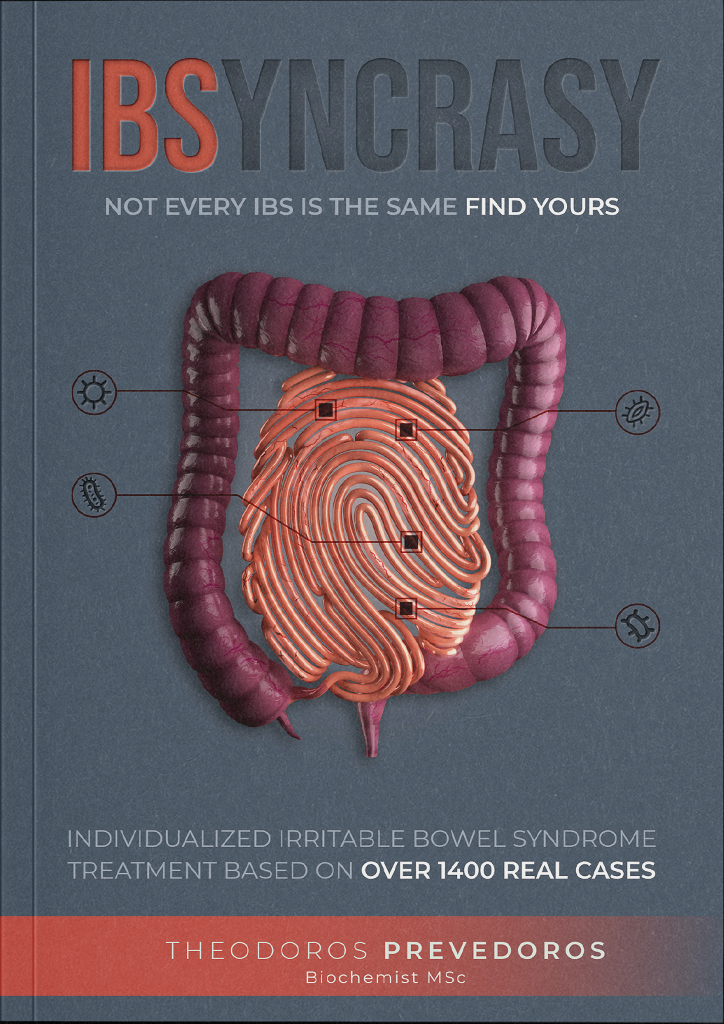
Generic treatments for PI-IBS often fall short due to the limitations of one-size-fits-all approaches. Spasmolytics, for example, only provide temporary relief from symptoms. Antibiotics target only one kind of bacteria, which might not be the root cause of PI-IBS for every individual. Moreover, generic probiotic formulations cannot cater to the unique microbial imbalances specific to each case of PI-IBS. All treatments must be accompanied by dietary and lifestyle interventions, and since the enteric nervous system is affected by the infection, caution should be exercised in adopting new treatments. Addressing individual factors in recovery is crucial to ensure a more effective and lasting treatment for PI-IBS.
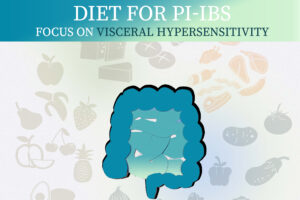
Post-Infectious IBS
Diet guides
Probiotics may help with PI-IBS, but their effectiveness depends on each individual’s unique microbiome composition during and after the illness. A thorough clinical investigation is needed to determine the right approach. This is crucial as introducing certain probiotics could lead to small intestinal bacterial overgrowth (SIBO) or exacerbate symptoms. While some people may find relief in using probiotics to treat IBS, others might experience worsening symptoms. Alternate therapies should be considered to cater to individual needs and microbiome profiles.
Post-infectious IBS symptoms may encompass a wide range of typical IBS manifestations, like bloating, gas, flatulence, and alternate stool consistency. However, due to the involvement of the enteric nervous system and the vagus nerve, heightened pain sensitivity becomes a distinguishing feature of this subtype. Besides mainstream treatments and lifestyle interventions, alternate therapies should be explored to accommodate the unique needs of each person.

| Cookie | Duration | Description |
|---|---|---|
| cookielawinfo-checkbox-analytics | 11 months | This cookie is set by GDPR Cookie Consent plugin. The cookie is used to store the user consent for the cookies in the category "Analytics". |
| cookielawinfo-checkbox-functional | 11 months | The cookie is set by GDPR cookie consent to record the user consent for the cookies in the category "Functional". |
| cookielawinfo-checkbox-necessary | 11 months | This cookie is set by GDPR Cookie Consent plugin. The cookies is used to store the user consent for the cookies in the category "Necessary". |
| cookielawinfo-checkbox-others | 11 months | This cookie is set by GDPR Cookie Consent plugin. The cookie is used to store the user consent for the cookies in the category "Other. |
| cookielawinfo-checkbox-performance | 11 months | This cookie is set by GDPR Cookie Consent plugin. The cookie is used to store the user consent for the cookies in the category "Performance". |
| viewed_cookie_policy | 11 months | The cookie is set by the GDPR Cookie Consent plugin and is used to store whether or not user has consented to the use of cookies. It does not store any personal data. |